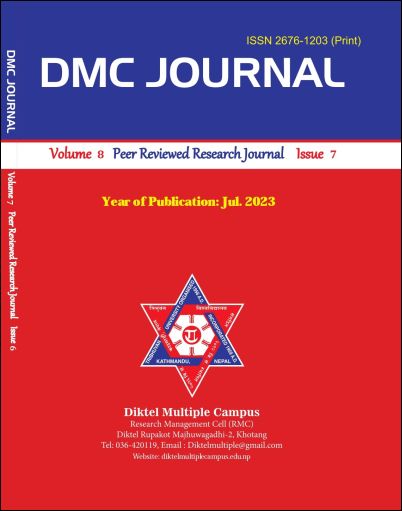Oh Pengdorje: The Voice of Margin for Liberation
DOI:
https://doi.org/10.3126/dmcj.v8i7.62433Keywords:
culture, community, identity, consciousness, damphu, Mhendo, liberationAbstract
This article aims to establish connections between the Tamang community, the Tamang people, and the poet's introspective observations of his own circumstances. It provides a comprehensive exploration of this concept and its application to the communal perception within the Tamang community. The poet achieves a heightened level of imagination, thanks to his Marxist outlook and ideology, gaining recognition in both political and cultural spheres. Furthermore, the article delves into the role of class within the literary work, examining characters, and battling oppression. The poet's discussion on oppression as a pervasive societal issue takes center stage in this paper.The reviewed collection of poems establishes a powerful link between subjective experiences and an objective world, serving as a conduit to engage readers in societal reflections. Writing, as emphasized by many previous authors in this series, serves as a means to explore, learn, and contribute. While the desire to become a writer may carry a scent of vanity and ambition, this particular writing style stands out for its focus on compassion and inquiry. The poet Raju Syangtan elaborates on his personal journey towards adopting this distinctive writing style.The narrative style in his writing revolves around themes of family, history, class struggle, departure from home, the quest for truth, return from fighting, forging a unique path, and embracing compassion and curiosity from the past to the present. The Marxist school of literary criticism serves as the guiding principle in the investigation of select poems within this framework.




